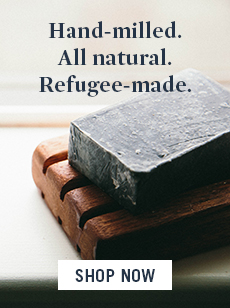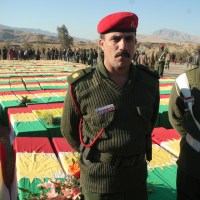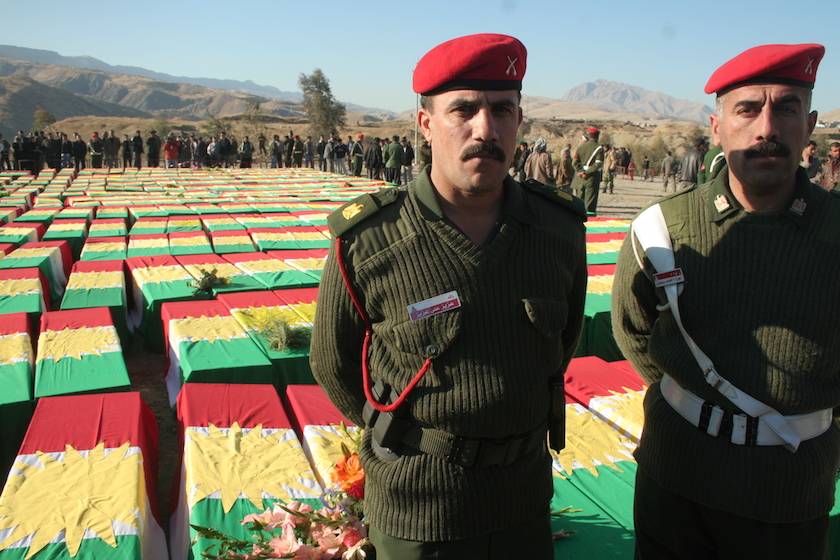
On this day in 1988 the war between Iraq and Iran had just entered its eighth deadly year. In the middle of the fight stood Halabja, a Kurdish city of 50,000 just eight miles from the Iranian border. Halabja shook under the relentless air and artillery bombardment by the Iraqi military. Then when the night fell, Iraqi helicopters and bombers dropped chemical bombs from the sky.
The survivors’ stories tell the rest: A father named Kherwan remembers, “Artillery rounds began to explode…and planes began dropping bombs on the town…so we ran and hid in our basement. Then it started with a strange noise that sounded like bombs exploding, and a man came running into our house shouting, ‘Gas! Gas!’ Later, I smelled an aroma that reminded me of apples and I lost consciousness. Sometime later, I discovered that the Iraqi air force had bombed Halabja with chemical weapons.”
Nouri Hama Ali recalled, “Many of the women and children began to die. The chemical clouds were on the ground. They were heavy. Many children were left on the ground, by the side of the road. Old people as well. They were running, then they would stop breathing and die.”

At the end of the day, some 5,000 Iraqi Kurdish men, women, and children were dead. Another 10,000 were maimed and blinded. Halabja’s soil, food, and water supplies were contaminated and the survivors began to witness an enormous increase in cancers, respiratory disease, miscarriages, infertility and congenital heart defects. This attack took its place in Saddam Hussein’s deadly Anfal Campaign which aimed at killing and displacing the Kurds in Northern Iraq. Human Rights Watch concluded in 1994 that this campaign resulted in as many as 100,000 deaths.
Every year, on this day, there are hundreds of articles, posts, and statuses drawing our attention to Halabja. Some use it as a time to draw attention to the fact that Hablabja’s infrastructure is still in shambles—24 years later. Others still call for justice to be served to all those involved in the genocide. Some condemn the countries that supplied Saddam with the chemicals he needed to create these weapons. Others call us simply to pause and remember. All of these are right and we honor Halabja by advocating in these ways. But working toward a Halabja with paved streets, running water, and constant electricity is not the best we can do. We can turn Halabja into a Dubai or a Manhattan, but if we still haven’t addressed why the bombing of Halabja happened in the first place, we continue to dishonor those who died there.
That’s why we believe in remaking the world through healing—not just through bricks and mortar. We believe that where forgiveness is freely given, reconciliation can happen and where reconciliation happens, there is freedom; freedom from the past; freedom from always being labeled the “victim” or the “aggressor;” freedom to live life the way it was meant to be lived—in restored relationship.
So I’m taking time today to stop and remember Halabja and to encourage those I know who were affected by it. And I’m also taking time to stop and remember that reconciliation is the way forward.
Photo by Julie Adnan


